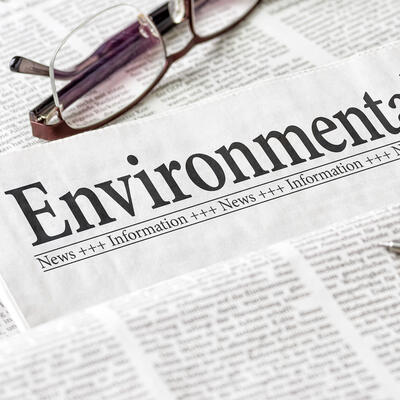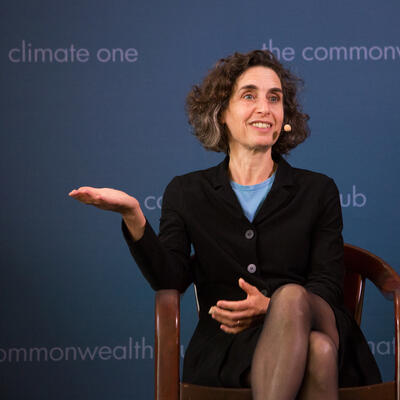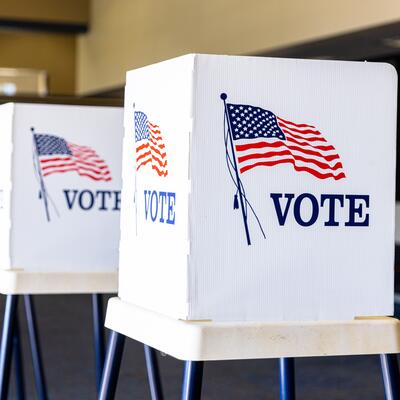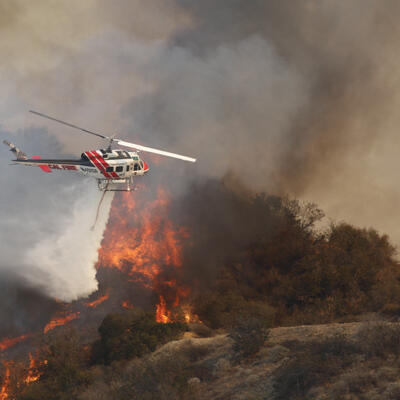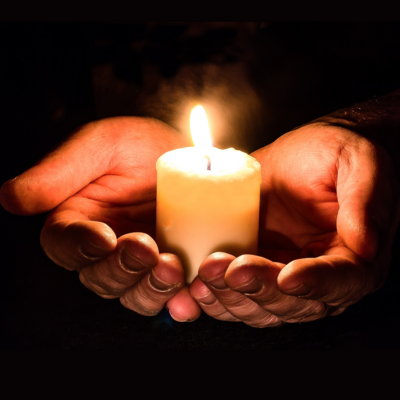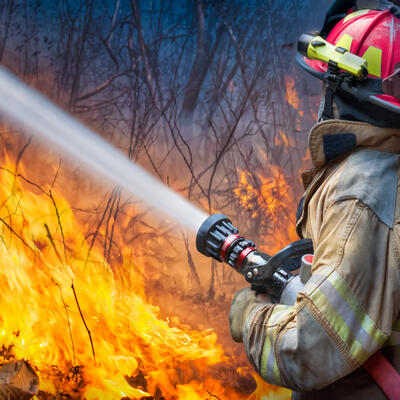
The Big Climate Stories of 2019
Guests

Coral Davenport
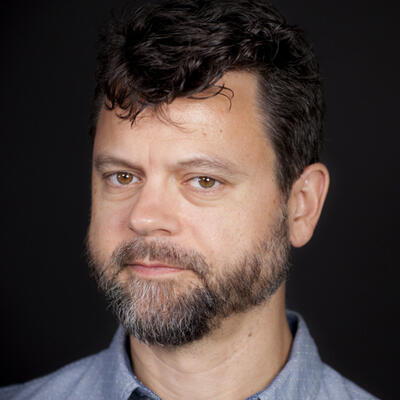
David Roberts
Summary
2019 saw a number of significant events in the climate world. Wildfires, floods, wind and extreme weather continued to batter the nation from California to Florida. There were firestorms in Congress and Tweetstorms from the White House. The rise of the youth climate movement, the advance of electric cars... and the emergence of climate as a top-tier presidential campaign issue.
David Roberts and Coral Davenport have both been covering the climate beat for fifteen years. Roberts writes about energy and climate change for Vox, and Davenport covers energy and environmental policy from the New York Times’ Washington, D.C. bureau. What stories most dominated their news feeds this past year?
”This year we saw the Trump administration move to roll back the largest and most significant climate change regulation that's ever been put forth by the federal government,” notes Davenport. She adds that the move has put the administration in direct opposition to California state government, which continues to set its own vehicle emissions standards and lead the way for the rest of the country. “They are…basically going to war with the state of California.”
“Everything is happening in one way or another in California,” agrees Roberts. As an example, he names one of his top stories “the fires in California…the inadvertent and deliberate blackouts in response to the fires, and then the sort of frenzied scramble on the part of California officials to figure out what to do about it.”
Other climate stories that rose to the top of the list included the way climate became an issue in the Democratic primary.
“For the first time in any presidential election in my life ever, we have seen climate change breakthrough to become a top-tier campaign issue,” Davenport marveled.
Full Transcript
Greg Dalton:This is Climate One, changing the conversation about energy, the economy, and the environment.
This week - what were the biggest climate stories of 2019?
Coral Davenport: This year we saw the Trump administration move to rollback the largest and most significant climate change regulation that's ever been put forth by the federal government.
David Roberts: The fires in California and the subsequent blackouts. The inadvertent and deliberate blackouts in response to the fires and then the sort of frenzied scramble on the part of California officials to figure out what to do about it.
Coral Davenport: For the first time in any presidential election, we have seen climate change breakthrough to become a top-tier campaign issue.
Greg Dalton:We’ll talk with two reporters who cover the climate beat to find out what stories dominated their news feeds this year - and which ones aren’t getting heard. The biggest climate stories of 2019. Up next on Climate One.
---
Greg Dalton: What were the biggest climate stories of 2019?
Climate One conversations feature oil companies and environmentalists, Republicans and Democrats, the exciting and the scary aspects of the climate challenge. I’m Greg Dalton.
2019 saw a number of significant events in the climate world. Wildfires,floods, wind and extreme weather continued to batter the nation from California to Florida. There were firestorms in Congress and Tweetstorms from the White House. The rise of the youth climate movement, the advance of electric cars...and more melting in the Arctic.
[CLIP: 2019 climate news]
Greg Dalton:On today’s program, we wrap up the year with two reporters that have had their finger on the pulse of the climate movement for over fifteen years. David Roberts writes about energy and climate change for Vox. Coral Davenport covers energy and environmental policy for the New York Times’ Washington bureau. For her, the year’s biggest climate story came out of the Oval Office.
PROGRAM PART 1
Coral Davenport: This year we saw the Trump administration move to rollback the largest and most significant climate change regulation that's ever been put forth by the federal government that was the Obama air regulations on fuel economy rules. Those rules put in place by the Obama administration would have cut about 6 billion tons of CO2 from the atmosphere. That’s how much CO2 the U.S. alone emits in two years. So the Trump administration is moving forward aggressively on trying to undo that rule as part of doing it they are also basically going to war with the state of California. The state of California has the legal right to set its own state-level vehicle emissions standards and any state that wants too can also follow California standards.
So President Trump has also kind of made it a personal mission to make sure his administration revokes California's legal authority to do that. As he has worked to do so California has sought to strike back. They cut a secret deal with four auto companies that agreed to actually break away from the industry and side with California against President Trump. This has led to this sort of giant war that’s become very personal on the side of the president. He was furious and enraged and embarrassed when that happened. And he's been trying to take it out on California in all these other ways. It split the auto industry itself in ways that we've never seen we've never seen major auto companies sort of taking sides, one with the federal government and the other with the states. And so this just has repercussions that are about climate change they’re about the global auto industry. It’s about states’ rights absolutely has broader impacts for the federal state relationship. So that has really been one of the biggest stories that I have covered this year.
Greg Dalton: How about David what’s one of the top stories that you covered this year?
David Roberts: Oh well if get to pick one I would probably also go to California. And the story that sort of combined the most of my personal and professional interests is the fires in California and the subsequent blackouts.
[Montage: News Clips]
The inadvertent and deliberate blackouts in response to the fires and then the sort of frenzied scramble on the part of California officials to figure out what to do about it what to do, you know, where it is both for all of PG&E, California’s other utilities. California's housing and land use plans how its utilities are structured. The fires and the blackouts together just sort of implicate all these different systems in California which have been sort of like neglected. So it’s a really fascinating puzzle to figure out exactly why what's happening is happening. But it's also just a really fascinating puzzle how to put together a response that doesn't have California basically being, you know, having the sort of electricity service over developing nation for the, you know, decades to come they’re saying now.
Like PG&E just did an internal report the results leaked. Where they said as current rate of replacing their lines that these deliberate blackouts could rise by 2 to 4 times. We’re gonna have 2 to 4 times as many for the next decade or two which is just insane to contemplate in the context of the worlds, you know, the richest state in the world's richest country. So that was my big one.
Coral Davenport: And if I could, it’s interesting Dave, I love that you also brought up California. And there is absolutely -- California is such a big part of the climate story and there’s absolutely a way that these two stories dovetail. It’s very simple which is this, California at this moment in many ways is Exhibit A for the real time impacts of climate change. And you know I want to be clear, no one is saying that these specific wildfires are specifically caused by climate change, but there is a lot of data showing clearly that the impact of climate change is going to lead to larger and longer wildfires in the West. So just as California is struggling with these deadly wildfires that are exacerbated by climate change it’s coming at the exact moment where the president is actively trying to take away California's ability to regulate greenhouse gas emissions in a way that sets it as a national and international leader.
David Roberts: I mean everything is happening in California. Everything is happening in one way or another in California. Another fascinating aspect of it to me is, you know, climate policy has been sort of abstract for a lot of Americans for a long time. And there's lots of sort of, you know, it's been a lot about big targets far-off targets and big sort of grand sweeping plans. But what you’re seeing in California is a very tangible way as Coral said that climate change is starting to bite but also the things California needs to do to both prevent further climate change and to adapt to current climate change are things that people aren't necessarily gonna like. They’re not gonna be able to live wherever they want. They're not, you know, they’re gonna have to like wealthy California liberals who live in cities are gonna have to accept more people moving in to their neighborhoods. They’re gonna have to accept some density. We’re gonna have to cut down on car travel, you know, which is like a religious right in California. You’re not necessarily gonna be able to live out on the edge of the forest and expect your fellow citizens to build infrastructure to serve you and expect your insurance company to cover you when you're at such high risk of a fire. You might not be able to plant the plants you want immediately around your house because of the need for fire bricks, you know. So we’re seeing ways that dealing with climate change on a real tangible ground-level basis is gonna be a lot more sort of like it's not all gonna be distant coal plants closing, you know, it’s really gonna hit home to people's personal behavior.
Coral Davenport: And what you were talking about Dave about the way in which something that is new and it’s not just people in California. I think the rest the country is looking at California and saying, you know, people who pay attention to this. Oh, this is something terrible and people are sort of it’s clicking for more and more Americans. This is climate change playing out in real time. And one very new way that we are seeing that play out is the fact that for the first time in any presidential election in my life ever, we have seen climate change breakthrough to become a top-tier campaign issue.
[Montage: News clips]
I have been covering climate change in Washington for, God, 15 years. And, you know, every single election, I think, you know, this is going to be the one this is going to be the time that like climate change breakthrough and it never is. I’m always all prepared and then it’s just crickets. And for the first time not only in the Democratic primary we’re seeing candidates compete at least rhetorically to talk about to show who cares more about climate change. We’re also seeing concrete plans from a number of the candidates. Almost every single candidate has explicitly endorsed some kind of price or tax on carbon, something that Hillary Clinton was too afraid to do when she ran for president as the nominee just four years ago.
So all of that is very new and I think that that it reflects polling showing particularly that younger voters for the very first time rank the issue of climate change as a high concern for the first time. And I think that that is driven in a lot of ways by the fact that in the last few years we are starting to see changes in our own lives in our own economies in our own backyards that people can connect to climate change as something that is real and now and affecting my life in a way that is not at all the sort of, you know, distant thing and like it's a moral obligation to care about it, you know, really I care about like who’s gonna cut my taxes. So that's a new thing this year, yeah.
David Roberts: We have to throw the sort of the resurgent youth climate movement in there somewhere. It's hard to pick apart these causal threads on exactly what came together for climate, you know, like Coral said to finally make this sort of long, long forecasted move to really being a priority issue. In a genuine way and not just sort of lip service way but like actually people are responding on polls. Primary voters are responding on polls spontaneously that it's a top-tier issue. A lot of things have come together, you know, the California fires and all the hurricanes.
But also I think you can tie this into a larger trend which sort of I think shapes a lot of the top stories of the year which is this incredible sorting of America into partisan camps. Sort of this is the background condition that is shaping everything.
So sort of like the right has gotten more right and the left has gotten more left. So sort of crazy denialism and the anti-regulations sort of the anti-regulatory fervor that Coral is talking about earlier. That's all sort of hyper and new but then this sort of left is also sort of hyper and new in it’s kind of unabashed embrace now not only of climate ambition but, you know, Medicare for all and all the rest of it. Just these two Americas drifting apart and it's happening on climate like everything else.
Greg Dalton: Yeah, whole generation of people who don't even know that there was a Gramm-Rudman or other bipartisan deals in the past. You’re right, they’ve never seen anything like that. Coral Davenport, there is some talk about there’s a solutions caucus now in the Senate. There’s some rumblings of a pulse there for Republican interest in climate. Most of the people who support it are now out of office. Carlos Curbelo, Ryan Costello, of course, you know, Trent Lott and lot of the elders of the party now out of office. Is there any hope there for some bipartisan deal on some narrow areas?
Coral Davenport: I wouldn't expect legislation on climate or much else. It certainly in the next year not in an election year. But to your point that yes, there are some interesting Republicans in that middle space. There’s a new bipartisan Senate climate caucus and the rules of it are the same as the ones of that defunct house caucus that you talked about which is that it was started by one Democrat and one Republican. And so as you can imagine I think there's a lot of Democrats that want to join it. But the rule is no Democrat can join it unless they bring a Republican. So I think there is like eight members now, you know, so that means four Republicans. And when Republicans join this caucus it's a very interesting sign that they recognize that this is an issue that polls well and has urgency among millennial voters they are looking to that. And there are some Republicans from purple states that don't want to be seen as climate deniers or science deniers. That does not at this point translate into meaningful legislation, you know, there is a difference between saying I'm not a science denier, you know, I'm in a climate caucus. For that to translate into supporting, you know, slapping a tax on CO2 emissions, which is effectively an energy tax. That’s still seen as a career ender for people, you know, for lawmakers in both parties.
There's a willingness to say I'm not a denier I care about it. But then there's this kind of and we see this in the house too, you know, there’s these Republicans on the house energy committee who’ve started putting out press releases talking about the need to address climate change. But then you go to the step further and like well what does that mean? So it translates to these buzzwords that we've seen from these Republicans who are cautiously stepping into the space thing, I care about it. But then they're not embracing they’re not supporting current climate regulations. They're not supporting carbon taxes or prices. They're not supporting rolling back existing subsidies on the fossil fuel industry. They use the word innovation which, you know, I sort of think can mean anything. Supporting technology, what does that mean? There’s not a lot of sort of bold, brave commitment to meaningful policy. But, you know, the Republicans in the Senate in particular, Mitt Romney is an interesting one in this space. Bill Cassidy of Louisiana, oil-rich state but also a state that’s absolutely at the front lines that is losing football fields of its own land every day to rising sea levels. John Cornyn of Texas, who is the number two Republican in the Senate after Mitch McConnell has, you know, kind of has been part of these conversations that is very new to me.
So it’s the same thing, I mean Texas is also a state that has been hit hard by droughts that have been attributed to climate change by peer-reviewed science. Obviously hit super hard by Harvey a couple years ago, you know. So even these oil Republican states, you know, Senators from these places are part of the conversation. I think it’s still a long time before that before you see meaningful leadership or you know a bipartisan breakthrough.
Greg Dalton: Matt Gaetz is a big Trump supporter and he spoken on Climate One about climate and fossil fuels. I think maybe where there might be agreement as on adaptation funding for seawalls funding for infrastructure to deal with the impacts but not perhaps getting at the cause. Every senator and member of Congress likes to see federal dollars coming into their state for infrastructure. Dave, you were gonna say something.
David Roberts: Yeah. Mostly I was just gonna underscore everything Coral said. I think the right attitude about this, I mean Coral and I have both been covering this for 15 years. And both I think can recall, really starting in the early 2000s more or less annual stories to the effect that, oh like the young Republicans care about climate change they’re gonna pressure their elders. And a few brave Republicans are beginning to speak up and is this the beginning of a pivot. And it’s just the same story year after year for 15 years now. And the promised pivot never arrives. So at this point I think skepticism is warranted.
---
Greg Dalton: You’re listening to a Climate One conversation about carbon pollution and the changing political climate in 2019. Coming up, whatever happened to the Green New Deal?
Coral Davenport: As a rallying cry it's clearly alive; as something that will translate into the actual policy solution to climate change? No, I think there is severely diminished enthusiasm.
Greg Dalton: That’s up next, when Climate One continues.
---
Greg Dalton:This is Climate One. I’m Greg Dalton, and my guests are Vox reporter David Roberts and Coral Davenport of the New York Times. We’re talking about the big climate and environmental stories they’ve been covering in 2019.
In past election years, climate change has been the third rail of political discourse. Republicans, have largely downplayed it or dismissed it altogether. Democrats have tiptoed around it. But as we head into 2020, the politics might be changing.
PROGRAM PART 2
Coral Davenport: One of the most surreal moments of this whole past year was in July when President Trump decided to give a speech a big speech at the White House in the east room on the environment. And I remember we got the notice that this was gonna happen. And we just thought, what? What’s gonna happen? So he gave a speech he spent almost an hour talking about his devotion he talked about his devotion to clean air and water. He called himself a protector of public land. President Trump has taken unprecedented steps to open up public lands to drilling. He has signed off on the largest rollback of federal land protection in the nation's history. He cited his desire for clean water. But he is right in the middle of rolling back a major water protection rule, the waters of the U.S. He described himself as a champion of the oceans. But his own policies have moved forward on opening up U.S. coastal waters for offshore drilling. He has promoted, he has actually no, they have worked on tried to do something on plastic straws.
David Roberts: Give him that.
Coral Davenport: Yes. He has been on the right side of the plastic straws I think. He boasted that CO2 emissions in the U.S. have gone down over the past decade at the same time that his administration is moving forward with on doing the major federal like regulations that have been put in place on carbon tax and withdrawn from the Paris agreement. I mean it was like 1984 and so when we covered that speech and we talk to the people in the White House in the campaign about it. And here's what we were told which is that the president giving that speech was the result, you know, came from the campaign. The Trump campaign was looking at the same polls that we're talking about and that these Republicans on the hill have seen that show very specifically that younger Republican voters millennial Republican voters who grew up being taught climate change in their basic science classes in the same way that you’re taught like smoking is bad. And who, you know, who are living with this who are sort of, the first generation to grow up on a planet where you can truly experience the impact of climate change. The young Republican voters care about this so he has to be seen caring about the environment.
And so they came up with this speech in which he talked about the environment underscored by the fact that almost every single thing he talked about his administration has moved to undo or remove protections. But the fact that it was seen as something that had to be talked about because of the polls and because the politics said this is a good thing. I mean that sort of interesting in 2020, you know, when the races are all that are happening we are seeing signs that the Trump campaign is gonna try to find some way to present this president is caring about the environment which they just didn’t even bother with in 2016. That illustrates that it has truly risen as, you know, okay, like in the same way you have to have, you got to have an economic policy you have to have a healthcare policy. Well, now you have to have a climate policy, that’s new.
Greg Dalton: Coral, your take, we heard a lot on the Green New Deal earlier in the year when it was announced by Ed Markey and Alexandria Ocasio-Cortez, you don't hear about it much now of course that’s not going anywhere unless there's a new president. But is it still relevant is it still, you know, talked about in Washington?
Coral Davenport: Not, I mean, the Green New Deal is not even a bill, you know.
It’s a resolution. It hasn’t been voted on it’s not legislation, even if it were to be, you know, passed even the Democratic house which is not Nancy Pelosi has no interest in it. It wouldn't do anything. It's literally saying we think these things are important and good. That is what the Green New Deal does. And I think that and it contains, you know, when it first came out and AOC was, you know, sort of everyone wanted some of her exciting new energy we saw a lot of these presidential candidates sort of jumping on board and saying oh I endorse that. And then without realizing that it contained, you know, just things so far beyond the scope of climate change, you know, guaranteed employment for all sort of all these things. And then you really saw a lot of these candidates back away from it. You saw a lot of lawmakers back away from it and say, wait a minute what even is this thing.
So, you know, I don't think that -- and it’s not something I think that excitement over the Green New Deal informed what the Democratic climate change proposals are. But their proposals are actual policies and could be, you know, could turn into legislation or regulation. The Green New Deal is not that.
I think that if we get -- and I also know that because the president has said it. The President and Republicans think that the Green New Deal is the best thing ever for them to go after. They think it is ridiculous. They think it is a liability for Democrats. And I know that there are Democratic operatives on some of the campaigns who think that's true. They sort of feel like why did they come out with this thing why have we been saddled with this thing. This is gonna be very hard it's not -- very hard to defend for, you know, middle-America voters. So, you know, and Nancy Pelosi was pretty disdainful of it. I mean she has, you know, if you want to get something through the house that's your way to go and she has no interest in championing that. So I don't -- as a rallying cry it's clearly alive; as something that will translate into the actual policy solution to climate change. No, I think there is severely diminished enthusiasm.
Greg Dalton: So there’s a disconnect between the people who are excited about it and the people who have power and can actually get something done. Barney Frank for example, former Congressman liberal said that the Green New Deal would be a loser in 2020 because it tried to do too much. Let’s look at the specific proposals of the candidates. How do you see them stacking up the top Democratic contenders in terms of their climate policy? There was a bit of a race of, you know, 1 trillion to 5 trillion to 16 trillion in terms of the budgets for their plans. But how do they stack up?
Coral Davenport: Well, you know, you talk about the money. Yes, a lot of them talk about spending a great deal of money. You don’t get that money unless Congress appropriates it. So that's something that is pretty difficult to translate from campaign promise to reality. Again something that I said earlier and that I did think was interesting that that climate town hall was brutal it was like eight hours long and I watched the whole thing. And as I wrote at the time one of the things that I did think was very interesting was just about every single candidate embraced a carbon price which is also something that's not in the Green New Deal. And I think that that's very important because if you talk to environmental economists who look at climate change as something that is fundamentally caused by the way we run our economy. We burn fossil fuels for energy to drive our cars and keep our lights on and keep our factories on. If you want to change that you need a solution that gets at sort of that core economic problem.
And, you know, William Nordhaus, who won the Nobel Prize for economics for his work on economics of climate change came up with this decades ago. The solution is you have to put a price or tax on carbon dioxide pollution. And political economists, environmental economists sort of across all stripes will say yes that’s true. Like how much it should be how it should be structured is still a matter that’s open for debate. But that’s, you know, if you put a tax on the thing that you want less of you send a signal that permeates the entire market. And the market the powerful forces of the market start working to make less of that because it's become too expensive and find cheaper alternatives, which is in this case make things that don't produce carbon dioxide less expensive. Make those cheaper and widely available. That’s the sort of fundamental solution. The Green New Deal did not get at that sort of core economic idea but just about every single Democratic candidate has. And that's pretty interesting I think because again we saw Congress try to do this during the Obama administration it fell flat. We saw members of Congress lose their jobs for embracing this. It died in the Senate because not enough Democrats would even support it. And that’s why Hillary Clinton did not run on this.
So the fact that we are starting to see that all these candidates are sort of saying up front like yeah, I support a carbon tax. Yeah, I support carbon price. That to me was the most interesting take away from the debate. One other interesting take away that I've also gotten from some of the candidates’ plans and most specifically Elizabeth Warren is that this is very new and very radical what she is proposing. She is proposing banning fracking. Not something that a president can do all by themselves. A president could impose a ban or moratorium on fracking on federal lands. They would need Congress to ban it on private land which is where most fracking takes place.
That would shut down a massive industry. That is a radical proposal that would put people out of work and would cut off access to achieve an abundant source of fuel. I mean that's, you know, and I think it’s even more radical in some ways than Medicare for all. I don't know if it's gotten quite as much attention. But like the fact that we see these mainstream candidates embracing much more aggressive in the case of carbon price I think that's realistically the solution to the problem. In the case of a ban on fracking it sort of like wow it’s a big extreme proposal that doesn’t sort of seem to be freaking people out either as much. So I thought that was really interesting.
Greg Dalton: Yeah it’s campaign rhetoric that would be really hard to do and would drive up the price of gasoline. Dave Roberts your take on the campaign, promises of the candidates.
David Roberts: Well, I mean they’re all campaign promises, right. I mean most of what is in all these plans would require cooperation from Congress. And as long as Mitch McConnell deploys the filibuster on every bill of any substance Congress is off-limits. There might be something people can do through a budget reconciliation bill or kill the filibuster maybe but then you can pass whatever it can get votes from, you know, Joe Manchin and Kyrsten Sinema. So all of this, all of it is aspirational almost all of it.
The only thing I would say is and I want to make this point because I think I disagree a little bit with Coral about this. I think that the most sophisticated thinkers about climate policy have reasoned their way past a price on carbon. Not that they don't want a price on carbon but I think this notion that a price on carbon is the one true solution. It's the only one that’s legitimate among economists it’s the only one that will truly work. I think people are getting past that because for one thing they have noticed it’s almost impossible to pass one anywhere of a size that would make a substantial difference. But also there are all these market failures there are also very specific barriers to technologies in very specific areas.
So, actually I think, first of all the Green New Deal does not not have a carbon tax and it does say in the resolution put a price on carbon pollution. It’s very vague about how to do that obviously it just doesn't foreclose the notion. But I think the right way to look at it is the way the Green New Deal looks at it, which is that a carbon price is at best one piece of a broad portfolio solution. The other point I wanted to make is it’s really revealing to me and interesting to me that sort of Coral contrasts, you know, a carbon price as being kind of the moderate, sensible economic solution and banning fracking as being radical. I feel like this and it’s also interesting like Joe Biden has adopted net zero carbon by 2050 as his rallying cry and all the moderates now are rallying behind that. As though that is a moderate alternative to the kind of radical things that Sanders and Inslee and Warren are producing. But the thing is, if you go in with your analyst hat on and start pulling the string of net zero by 2050 and just follow it backward to what is going to be necessary to achieve that, you end up with radicalism. You can't have a massive fracking industry and have net zero carbon emissions. I mean we’re gonna be able to bury some margin I mean mostly what we want to be doing is burying CO2 that we just capture from the air. But some of it we can capture from fossil fuel or industrial streams and bury.
So it’s not initially true that there’s gonna have to be zero fossil fuel but it’s gonna be pretty close to zero and it’s certainly gonna be not a giant robust fracking industry. So like Joe Biden and all these people who want to claim that their plans are moderate or that our carbon price is moderate or there's a moderate way to do this. I want to hear what is the moderate path to net zero by 2050, you got to get rid of fracking it emits greenhouse gases, anything that emits greenhouse gases has got to go. The radicalism is built into the problem and all I see like Democrats doing with their different plans and their different sort of rhetorical strategies around this is figuring out different ways of talking around that. But like sooner or later there's only so long we can walk for it in this weird sort of double mind of sort of, you know, these kids shouting for radicalism. And Joe Biden pretending that he's moderate and, you know, house caucus pertaining that it’s moderate on it. Sooner or later you got to get down to brass tacks and policies and you’re gonna find I think when you do that. But if you really want to get to net zero by 2050 you’re doing things that are extreme relative to American politics. There's just no way around that. We’ve run out of time to sort of wave our hands at distant targets anymore. Like if you want to do that by 2050 you got to start now and go pedal to the metal.
---
Greg Dalton:You're listening to a conversation about the biggest climate news of 2019. This is Climate One. When we come back, what stories were we not talking about enough?
Coral Davenport: I really want to see more coverage holding other countries accountable for what they are and aren’t doing.
Greg Dalton: That’s up next, when Climate One continues.
---
Greg Dalton:This is Climate One. I’m Greg Dalton. My guests today are reporters Coral Davenport of the New York Times and David Roberts of Vox, and we’re talking about the climate stories that made headlines in 2019.
Let’s turn now to news that should have gotten more play. What were the most undercovered climate stories of the past year?
PROGRAM PART 3
Coral Davenport: Something that I always want to see more coverage of is coverage of - here in the U.S. we cover, you know, what our government is doing and not doing on climate change. I really want to see more coverage holding other countries accountable for what they are and aren’t doing. China obviously is the largest emitter in the world but it also is in the process of implementing a cap and trade system and it's always talking about it. About, you know, that sort of using the moment of the U.S. pulling back on climate leadership to say well we are taking the lead.
But I think that, you know, of the countries that are the large, you know, 10 or 15 largest emitters I think they are enjoying kind being able to criticize the U.S. for pulling back. But there's not really anyone holding them accountable. And I think coverage of what are the emissions and policies like actually, you know, what those add up to in other countries is something that you know, we can all see more. As opposed to just what their leaders are saying about climate change.
David Roberts: Yeah, I tend to think that the stories that get undercovered generally are kind of incremental trends sort of trends are gonna building and building and building but there's rarely kind of one headline event to sort of pull out and make a story out of. So two of those that I've been trying to cover and surface this year. One is the increasing attention in climate circles too difficult to decarbonize sectors like industry, you know, high temperature stuff for industry or long-haul shipping or long-haul trucking, aviation. There’s this sort of kind of 10% to 20% of the economy that we really don't know how to decarbonize even, you know, kind theoretically. And there's just of so it’s kind of a front end of a really large I think it’s gonna be a really large wave of attention and sort of innovation and investment into all that stuff. It’s pretty exciting because it’s just sort of interesting on a technical, you know, on technical level. And the other one is also energy technology story which is the spread the sort of slow spread of distributed energy technologies. Meaning sort of small-scale behind the meter stuff your EV, your solar panels your batteries all the stuff that customers own.
This kind of stuff they just been not very, in a not very planned way it’s been kind of drifting out to the public for years. But now we’re seeing for instance in California a bunch of trends converging that are gonna really accelerate that. And I think that the changes that that is going to spark in the electricity system are just enormous and fundamental. And we're only sort of we’re only beginning to grasp I think what that’s gonna involve in terms of ownership, in terms of how utilities manage things in terms of how utilities are regulated in terms of how ordinary people interact with energy in terms of just those kind of software and sophistication and the efficiency of use we’re able to achieve once all these sensors are everywhere. We know where every electron is at all times and we know the weather much better thanks to better computing power and we know and we have awareness and visibility into every appliance or house or building in an entire area. Just all that information and computing power is gonna make energy use and distribution just so much more sophisticated and interesting. And it’s sort of happening around the margins really quick and I think it’s gonna really bust into the mainstream in the next couple of years.
Greg Dalton: Certainly the wildfires in California spurred people's interest in getting or test the power walls and their storage. Lot of people bought diesel generators as well. The states are doing, look to as, you know, vehicles of progress when the federal government is going in a different direction. This year we saw Ohio go backwards with the law but New York, Washington, Oregon and Colorado took big steps forward. So perhaps Dave you could address what’s happening at the state level because some significant things did happen in 2019 at the state level.
David Roberts: Two things. One is, you know, in the 2018 elections not only did Democrats retake the house and, you know, kind of put the brakes on the worst of the federal stuff. But they took a lot of governors offices they took a lot of state legislatures. They won trifectas meaning the governor's office and both houses of legislature in I think like eight new states, I’m making that up, it might not be eight but it was a bunch of new states. So and consequently in the wake of all those Democratic victories you see a wave of incredibly good ambitious climate policy coming out of these states and cities. Washington State, Nevada, Colorado, New Mexico, California, New Jersey I mean on and on down the line basically. And some of these policies like Washington, I would particularly sort of pick out Colorado and Washington just on the policy basis. Just really thoughtful and detailed policy getting really down into the weeds of, you know, sort of like performance incentives for utilities.
Like it’s clear from these experiences of these Democratic states that there are a lot of Democratic policy wonks out there in government who have been thinking about this a long time and haven’t really had any way to implement it or try any of it. So there’s just like a lot of great ideas laying around. And Colorado, I mean Colorado passed like, there’s like 15 energy bills just up and down.
So two things I think we can learn from that. One is, you know, there’s just lots of good policy available there's lots of low-hanging fruit. There's tons of progress that can be made at an economic benefit at an economic and political benefit. Like there’s lots to do before we get to even the hard questions. And two, it just seems striking to me if there was a trend this clear in some other area of culture it would be weird if it went unnoticed. Namely, there's all this discussion over how we can pass good climate policy how we can pass good clean energy policy. What’s the right message, or what’s the right coalition what’s the right campaign what’s the right tactic. And we have a really clear example, we have about 20 examples of cities and states that passed comprehensive good climate and clean energy policy. And the one thing they all have in common is that they elected Democrats. They elected Democrats in numbers sufficient to overwhelm Republican resistance. That is the one thing they all have in common and not a single one was led by Republican. So you can lament all you want about whether climate and clean energy ought to be partisan issues or whether they’re still gonna be partisan issues in the future or whether that might change or anything else. But what you can't dispute is that on the ground in practice it is a super partisan issue in that when you elect Democrats they do it. And when you elect Republicans, they don’t.
Greg Dalton: Coral Davenport, you agree?
Coral Davenport: I do, yes. I think that’s a great and depressing way of putting it.
David Roberts: That’s my specialty, Coral.
Greg Dalton: Speaking of depression I wanna end on a personal note something I know that Dave Roberts wrote. I vividly remember when you burnt out and walked away a few years ago, Dave, and said this is too much and you went away and you came back. How do you personally and I struggle with this myself, deal with, you know, covering such a doom and gloom topic what’s perceived to be a doom and gloom topic every day. So looking ahead to an election year how do you personally handle covering such a heavy issue? Coral let’s start with you or whoever like to start.
Coral Davenport: Dave, do you have any answer?
David Roberts: We both get asked this all the time and never have a good answer. I mean to me it’s worse like to me now Michelle Goldberg just had a great column in the New York Times op-ed page about democracy, sadness basically or democracy depression I forget she put it. But it’s this sort of in addition to all the other sort of psychic battering that it feels like just following the news these days there’s a real sadness as we’re watching our U.S. democracy crumble around us. And then to me, there’s also climate sadness, right, as we’re watching, you know, we’re really living through on almost a year by year basis. The last chance to avoid the worst slipping away like on a day-to-day year-to-year basis. Like these are really the crucial years and we’re not doing anything we’re not using them. So to me like whatever it was I was overwhelmed by five years ago it’s a thousand times worse now. I feel like I’m watching U.S. democracy die and watching the world kind of sail into catastrophe just in front of my eyes all the time. It’s really like I don’t have a great coping strategy other than compartmentalization, you know, and like bad habits, I don't know that anybody --
But I will say that like one of my great fears is that so many of the dynamics in terms of both U.S. democracy falling apart and the climate falling apart is that so many of the dynamics are self-reinforcing; they get worse over time. Like I think this period of time is gonna seed so much trauma in people in ways that we don't even really understand yet. Lot of stuff just getting shoved down right now, you know, and shoved down and tucked away. Because it seems like every day is kind of like a mobilize panic everything is going wrong day, we just don’t have time to sit with anything. So a lot of stuff is getting shoved away and it’s gonna come out in coming years and people who are like recovering from trauma or burnt by trauma are not the kind of people who are inclined to like look at the future with optimism and get up off the couch and fight. Like so many of these dynamics climate makes the psychic problem worse and the psychic problem makes climate worse. And like climate disasters make people more fearful and anxious. And fearful, anxious people tend to do less to mitigate climate change. They tend to do more to sort of pull up walls and, you know, and treat their country like a lifeboat.
So I just feel like there are a lot of self-reinforcing negative cycles going on and I honestly don't know how to cope with them. And don't know when there's gonna be respite honestly or if there ever will be again in our lives.
Coral Davenport: That was super depressing, Dave.
David Roberts: Even more depressing?
Coral Davenport: Well, yeah, you brought in like the idea of seeding trauma that’s like a fresh, new whole dimension of depression that you’ve now given to me to think about. I don’t have particular coping mechanisms. One concept that sources bring up to me from time to time in Washington when we talk about sort of the intractability the partisan divide over climate like how is anything ever gonna happen.
And I do have a sense that as we have the first generation of children who grow up in a world where they absolutely are personally affected by climate change. I think it becomes so obvious that, of course, this is something we have to do. And I think that there won’t be a policy solution until the problem has become so severe that it has hurt or affected an entire generation. I think that might be what it takes for it to be something that inevitably becomes policy.
I think that does happen in my lifetime and so I think but at that point, you know, a lot of pretty severe damage is baked in. I'm named after coral reefs. My parents were scuba divers, you know, my kid is not -- my two-year old is not gonna be able to snorkel or scuba dive in the coral reefs that inspired my parents to name me, they’re already dead and gone. They’re in Okinawa like they’re already bleached. So he's gonna grow up in that world but he will know that. And so if it happens, if significant policy happens whether it's radical or whether is radical doesn't seem radical. I think I see a window for that happening realistically in the next 10 or 15 years. Really bad stuff will have baked in but this sort of apocalyptic future that is laid out to us in some of these reports is averted. Okay, alright, I can live my life and I can read books and talk to people and have a family and do what I can. I can still have a good life in that world even if the coral reefs are gone.
---
Greg Dalton: You’ve been listening to Climate One, and a wrapup of the big climate news from 2019. My guests were Coral Davenport, energy and environmental policy reporter for The New York Times, and David Roberts, energy and climate reporter for Vox.
To hear more Climate One conversations, subscribe to our podcast, climateone.org. Please help us get people talking more about climate by giving us a review wherever you get your pods.
A quick reminder that as a non-profit, we rely on the generosity of individuals like you to bring these podcasts every week. We hope you’ll consider making a donation to support Climate One, which will be matched up to $15,000 if made before the end of this year.
Thank you for listening and for your support.
Kelli Pennington directs our audience engagement. Tyler Reed is our producer. Sara-Katherine Coxon is the strategy and content manager. The audio engineers are Mark Kirchner, Justin Norton, and Arnav Gupta. Anny Celsi edited the program. Dr. Gloria Duffy is CEO of The Commonwealth Club of California, where our program originates. I’m Greg Dalton.
